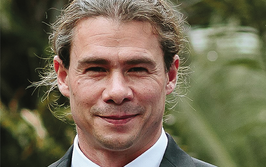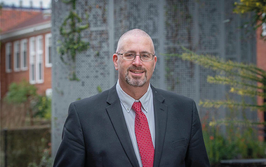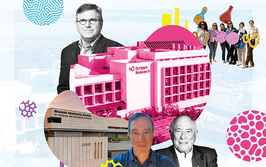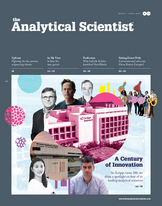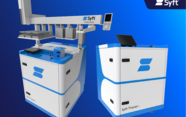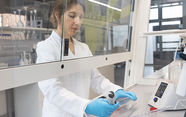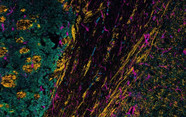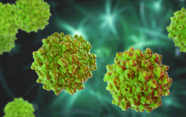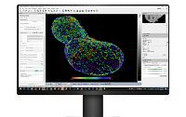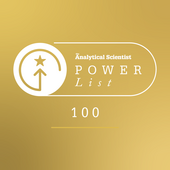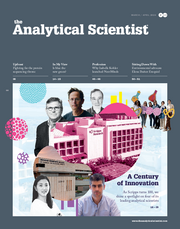Writing the Book on GC – and Living Life
Sitting Down With... Harold McNair, Professor Emeritus, Analytical Chemistry, Virginia Tech, Virginia, USA
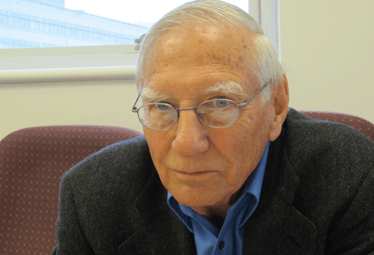
What was your route into analytical science?
People always assumed I was going to college – my teachers called me “professor” when I was in seventh grade. I made my first gas chromatography injection during a summer job at Amoco Refinery in Chicago in 1957. I’d just finished my Master’s degree at Purdue in electrochemistry and I was looking for a novel PhD thesis. My project for the summer was to find liquid phases that would separate butane-1 and isobutylene. I assembled Amoco’s first simple GC, and by the end of the summer, I had succeeded – and my name was on two patent applications. I became totally enthralled with GC and, together with my contact at Amoco – Bob Dinerstein – and one of my first mentors – Steve Dal Nogare, I completed my PhD thesis on GC two years later. I was then fortunate to receive a Fulbright scholarship, studying chromatography in the Netherlands. What an opportunity! By working with A.I.M Keulemans, I was able to become totally immersed in GC, as well as meeting several pioneers: Marcel Golay, A.J.P. Martin and Dennis Desty. The path for my scientific career was set.
And over 50 years, you maintained that interest...
I must be a bit of a fanatic, because I still get turned on by gas chromatography – I’m still giving lectures and writing papers... I find separation science fascinating. If you don’t separate compounds in a chromatograph first, no other technique by itself can give you the trace level of quantitative precision that you get from GC and LC.
How did your book, Basic GC, come about?
When I was working for F&M Scientific, I gave a lecture at the University of Athens. At the time, most Europeans knew very little about GC – except the English and Dutch! The university asked me to come back for another day, but I ended up coming back four days in a row. Afterwards, they asked me to write up my notes and I sent about 16 pages and five figures – the starting point for the book. When I had more time, I decided to write the first formal edition. I wrote for people whose first language was not English, using a very simple, direct style. I just wanted to familiarize people with GC – to help them understand and appreciate it. The book sold more than 130,000 copies over 25 years, and was translated into nine different languages.
Why did you choose industry but end up in the academic world?
When I was in grad school, I decided early on that I didn’t want to be an academic. First of all, the salaries were much better in industry – and, let’s face it, that means means more security for your family. Second, industry had more modern equipment, which meant I could do state-of-the-art research. I saw so many professors working with abstract ideas, not recognizing that industry does real-world, practical applications with deadlines – “solve this problem NOW!” I still think industry is a lot more challenging. Ultimately though, I fell in love with teaching. I found that students were so curious (for the most part!) and so interesting to be with, that I knew that’s where I would be happiest.
What are your views on cooperation between academia and industry?
I learned from Keulemans that such an interface is essential. When I retired from Virginia Tech, my GC/LC lab probably had over half a million dollars of instrumentation, donated from Hewlett Packard, PerkinElmer, Shimadzu, Restek and Phenomenex. I tell all of my students, if you help those in industry, they will help you. Most of my students had one or more summer jobs in industry, but some professors don’t want their students delaying their research by working in industry for the summer – they should stay in the lab, doing basic research! Eighty percent of PhD students in the USA go into industry, yet 90 percent of grad students are taught that they should become academics. There’s something wrong there.
You have a reputation for widening the horizons of your students...
If I think about all the experts I’ve worked with, including those early pioneers – they were willing to share their ideas with everybody. I was just fascinated by these people and knew they were smarter than me. They turned me “on” to GC. I only hope that in some way I’ve been able to pass that enthusiasm on to my colleagues and grad students. One of my former students was asked if he had learned a lot about chemistry from me. He said, “Chemistry? That came easily. We learnt how to drink beer, how to travel around the world, how to stay up late entertaining people and still get up the next day to give a lecture at 8am. We learnt from Professor McNair how to live and enjoy life!”
Frank van Geel is owner of educational website Chromedia and Scientific Director of The Analytical Scientist. He studied analytical chemistry, specialized in mass spectrometry in the Netherlands and did several years of post-doc work in spectroscopy with Jim Winefordner at the University of Florida in the US. Then he became a science teacher and later publisher in chemistry and physics related topics. He developed numerous publications in chemistry and other sciences. He strongly supports the mission: Building online communities is the road to take. We need to strengthen the quality of analytical chemistry and we need to strengthen our community by sharing know-how and by sharing our opinions, visions and our views of the future of analytical science.
